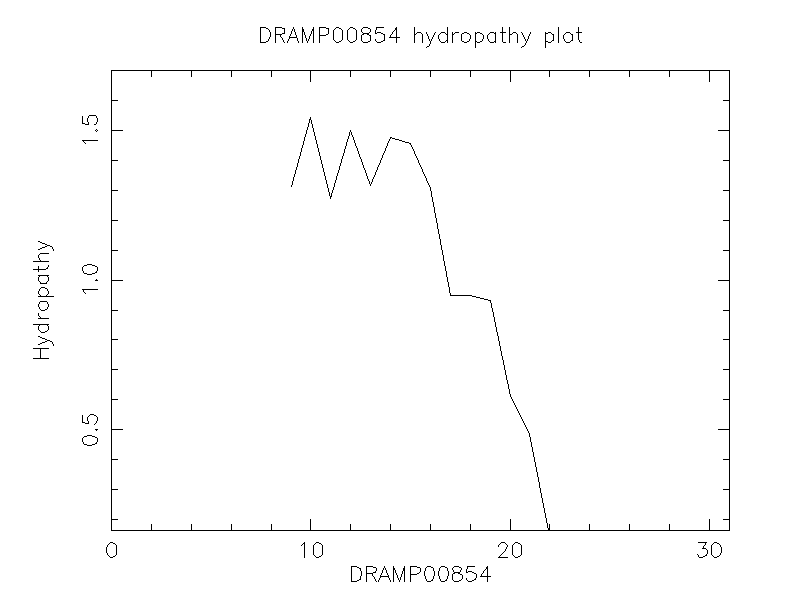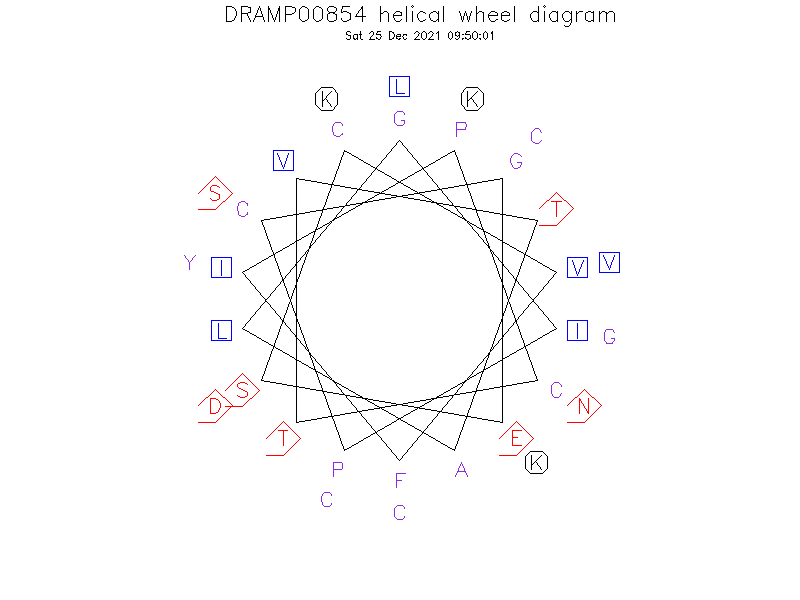General Information
-
DRAMP ID
- DRAMP00854
-
Peptide Name
- Cyclotide cter-R (Plant defensin)
-
Source
- Clitoria ternatea (Butterfly pea)
-
Family
- Belongs to the cyclotide family
-
Gene
- Not found
-
Sequence
- GIPCGESCVFIPCTVTALLGCSCKDKVCYKN
-
Sequence Length
- 31
-
UniProt Entry
- P86903
-
Protein Existence
- Protein level
Activity Information
-
Biological Activity
- Not found
-
Target Organism
- No MICs found in DRAMP database
-
Hemolytic Activity
-
- No hemolysis information or data found in the reference(s) presented in this entry
-
Cytotoxicity
-
- Not included yet
-
Binding Target
- Not found
Structure Information
-
Linear/Cyclic
- Not included yet
-
N-terminal Modification
- Not included yet
-
C-terminal Modification
- Not included yet
-
Nonterminal Modifications and Unusual Amino Acids
- Not included yet
-
Stereochemistry
- Not included yet
-
Structure
- Bridge
-
Structure Description
- Not found
-
Helical Wheel Diagram
-
PDB ID
- None
-
Predicted Structure
- There is no predicted structure for DRAMP00854.
Physicochemical Information
-
Formula
- C139H227N35O42S6
Absent Amino Acids
- HMQRW
Common Amino Acids
- C
Mass
- 3252.9
PI
- 7.76
Basic Residues
- 3
Acidic Residues
- 2
Hydrophobic Residues
- 9
Net Charge
- +1
-
Boman Index
- -3.81
Hydrophobicity
- 0.577
Aliphatic Index
- 81.61
Half Life
-
- Mammalian:30 hour
- Yeast:>20 hour
- E.coli:>10 hour
Extinction Coefficient Cystines
- 1865
Absorbance 280nm
- 62.17
Polar Residues
- 15
DRAMP00854

Comments Information
Function
- Probably participates in a plant defense mechanism.
PTM
- This is a cyclic peptide which may contain three disulfide bonds 4-20; 8-22; 13-27.
Literature Information
- ·Literature 1
-
Title
- Discovery of cyclotides in the fabaceae plant family provides new insights into the cyclization, evolution, and distribution of circular proteins.
-
Pubmed ID
- 21194241
-
Reference
- ACS Chem Biol. 2011 Apr 15;6(4):345-355.
-
Author
- Poth AG, Colgrave ML, Philip R, Kerenga B, Daly NL, Anderson MA, Craik DJ.

